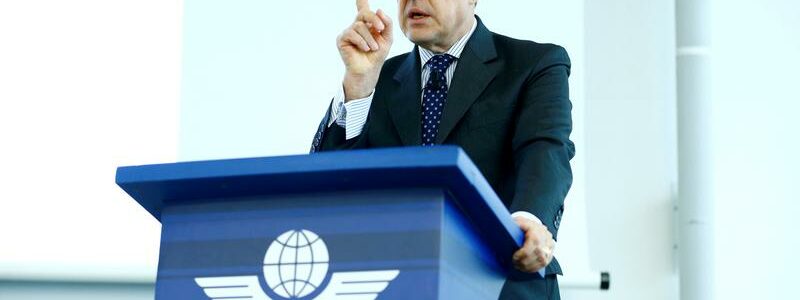
Airline consolidation set back five years, IATA chief says
PARIS (Reuters) – The large-scale government intervention in airlines triggered by the coronavirus crisis will hold back sector consolidation for up to five years, the head of global industry body IATA predicted on Wednesday.
Alexandre de Juniac, the International Air Transport Association’s outgoing director general, made the comments in an interview with Reuters as the organisation called for a new round of subsidies to weather the COVID-19 pandemic.
“Governments have taken big stakes in many of their national airlines, so it will be difficult for them to sell this asset to any foreign actor and explain that to the taxpayer,” De Juniac said. “It will be a factor that will prevent consolidation in the coming three to five years.”
Airline tie-ups already faced obstacles before the crisis, including ownership rules linked to bilateral aviation treaties. That has not prevented the emergence of multinationals such as IAG, Lufthansa and Air France-KLM that preserve national carriers within their group structures.
Aid has further raised the hurdles by piling up debts, shielding potential targets and tying would-be buyers’ hands. EU rules bar recipients such as Lufthansa and Air France-KLM from making acquisitions until bailouts are repaid.
The IATA head, who hands over next month to IAG veteran Willie Walsh, also urged governments that have already provided $225 billion in sector aid to support a travel recovery through new air ticket and route subsidies.
Australia last week announced plans to subsidise 800,000 domestic flights as part of a A$1.2 billion ($925 million) travel revival package.
“We’ve already seen some plans by governments to subsidise tickets, routes and domestic journeys,” de Juniac said during a media briefing later on Wednesday. “I urge governments to consider stimulus measures.”
After a year of partial shutdown, many airlines say they now need a significant rebound within months to survive – let alone to fund investment in cleaner aircraft and fuel technologies.
Global airlines are discussing more ambitious climate goals than their existing pledge to halve net carbon emissions by 2050, de Juniac said, confirming earlier comments to the Financial Times.
Nonetheless, any wider recourse to public subsidies for air travel is bound to bring some controversy.
“The new normal is going to mean less flying, especially corporate travel, and the industry must adjust,” said Andrew Murphy of the campaign group Transport & Environment.
“Public funds should be channelled into developing cleaner fuels and new plane designs, not subsidising what’s still the most carbon-intensive form of travel,” Murphy said.
IATA began preparing to lobby for route subsidies soon after the pandemic erupted last year, according to internal “key messages” previously reported by Reuters.
The organisation now expects borders to have largely re-opened by October, when it plans to hold its annual gathering in Boston, four months later than first scheduled.
($1 = 1.2965 Australian dollars)
Source: Read Full Article